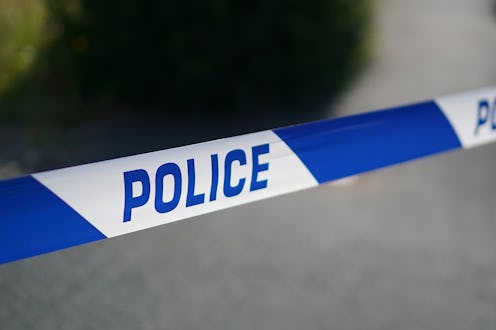Entertainment
BBC's New True Crime Doc Tells The Story Of 3 Men Wrongfully Convicted Of Murder

BBC Two's Catching Britain's Killers: The Crimes That Changed Us continues to unravel some of the UK's most compelling crime stories, many of which went on to change our legal system forever. In the latest episode of the true crime series, the wrongful convictions of three men for the murder of Maxwell Confait, and subsequent convictions of Colin Lattimore, Ronnie Leighton, and Ahmed Salih, are all expertly reexamined — and this remarkable story reveals what led to some significant changes to certain police practices. But where are Colin Lattimore, Ronnie Leighton, and Ahmed Salih now?
Back in 1972, police officers discovered the body of 26 year-old Maxwell Confait whilst attending to a fire. Confait, who was a sex worker also known as Michelle, had been strangled to death, and shortly after the gruesome discovery, Lattimore, Leighton, and Salih were arrested on suspicion of lighting a series of small fires. As the Mirror reports, police later accused the three suspects, all of whom were aged 18 or under, of being responsible for Confait's death. Going against usual police practices, the boys were held and questioned without a lawyer, and without notification of their parent or guardians. According to the Mirror, 15 year-old Ronnie and 18 year-old Colin were eventually sentenced to life in prison, whilst 14 year-old Ahmed was handed a smaller sentence of three-and-a-half years.
However, as the Radio Times, reports, Ronnie, Colin, and Ahmed were later cleared of any involvement in the crime. The current location of the wrongly convicted trio is unclear, however, BBC Two's Catching Britain's Killers: The Crimes That Changed Us may provide inside into their whereabouts, and according to the BBC, the programme will feature interviews with those closest to them.
As The Mirror reports, at the time of the murder, it was revealed the boys had been manipulated into signing a statement in which they confessed to starting a fire in Catford, South East London, and to murdering Maxwell Confait. Shortly after the police interrogation, Colin's family were convinced of his innocence, and despite a strong alibi confirmed by various witnesses, the prosecution refused to budge, citing Colin's apparent confession as strong enough evidence against him. According to the Mirror, a young barrister named Jonathan Caplan received a letter from Colin's family in 1974, the details of which outlined Colin's case. The following year, his case was heard in the Court of Appeal, and in a stunning move, the convictions of Lattimore, Leighton, and Salih were overturned.
As The Mirror reports, the case sparked a change in the law, with the 1984 Police and Criminal Evidence bill bringing in more rights in the interrogation room.
The full details of the case are revisited in Catching Britain's Killers: The Crimes That Changed Us, and you can catch the latest episode on Wednesday, October 23, at 9 p.m. on BBC Two.